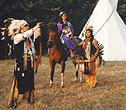How Much do Languages Change with Age?
Thursday, November 30th, 2006Well, I’m back from Colorado and the enjoyment of my grandchildren crawling over my spawling body, which makes it down to the floor more easily than it comes back up from it. I arrived to find an e-mail from my good friend and editor of our daily Good Word, Paul Ogden, about Modern Hebrew which raises the point about the boundaries of language. Paul wrote:
 “I had the pleasure of attending two of four lectures by Ghil’ad Zuckermann [who] claims that the language spoken in Israel today should be called Israeli, rather than Modern Hebrew. This is because of a break of some two millennia in which virtually no Jews spoke Hebrew as a mother tongue, leading to a situation where the late 19th century European Jewish revivers of Hebrew could not help but project their Indo-European, and specifically Yiddish, biases into the language. He makes an interesting case, though I’m not convinced.”
“I had the pleasure of attending two of four lectures by Ghil’ad Zuckermann [who] claims that the language spoken in Israel today should be called Israeli, rather than Modern Hebrew. This is because of a break of some two millennia in which virtually no Jews spoke Hebrew as a mother tongue, leading to a situation where the late 19th century European Jewish revivers of Hebrew could not help but project their Indo-European, and specifically Yiddish, biases into the language. He makes an interesting case, though I’m not convinced.”
My response was I am inclined to agree with Zuckermann although I cannot claim any detailed knowledge of the language(s) involved. I have received a dozen complaints from Iranians arguing that Farsi is, in fact, Modern Persian and should not be called Farsi. Persian has changed so much that even Middle Persian, spoken from the 3rd to 10th century, is generally given a distinctive name: Pahlavi. Well, Italian is just as likely Modern Latin as Farsi is Modern Persian (though in this case Spanish, Portuguese, and French have as strong a claim to that title).
In “A Language is a Dialect with an Army” I wrote about the difficulty of drawing a line between a strong dialect and a different language. This is the same problem that we face in drawing (or not drawing) a line between Old and Modern Hebrew: it is a matter of degree upon which no one agrees. If Modern Hebrew is 51% different from the Hebrew of the Bible, should we give it a different name? 75%, 99%?
No modern speaker of English can understand a word of “Old English” without taking a course in it. We are as likely to understand Dutch as Old English, yet we do not speak “American”, “Australian”, and “British” languages.
The decision to use a different name, however, is never a linguistic one. It is always a political or cultural one. Nations that like to be associated with their past tend to want to symbolize the continuity with a continuous name for the language. Most nations with ancient cultures do. Only when there is a grave conflict such as that between all the various dialects of Latin that developed into languages is the decision clear-cut. Fortunately, it is an issue that the adjectives “old” and “modern” resolve as easily as an entirely new name.



 Last October I wrote up fish as a Good Word, referring to the “silly spelling” of this word as
Last October I wrote up fish as a Good Word, referring to the “silly spelling” of this word as  Of course, no one knows what the word means any more—that mystery no doubt adds to the fear-factor conservatives rely on—and I am not going to offer one here. (You’re welcome.) I am simply going to make a few comments on the usage of the term and explore how it could come to pass in one of the most progressive (a step beyond liberalism) nations on Earth, liberal could come to be a pejorative term.
Of course, no one knows what the word means any more—that mystery no doubt adds to the fear-factor conservatives rely on—and I am not going to offer one here. (You’re welcome.) I am simply going to make a few comments on the usage of the term and explore how it could come to pass in one of the most progressive (a step beyond liberalism) nations on Earth, liberal could come to be a pejorative term. I have just uploaded an
I have just uploaded an  When I was an undergraduate at the University of North Carolina in 1959 of the 100 counties in the state, only 2-3 HAD a functioning Republican Party organization. Everyone voted Democrat and the real elections were the primaries. No one ever received a majority in a primary and usually there were two candidates close enough to the winner that either he (white male Protestant) or the runner-up would have to “persuade” the third-place winner to throw his votes behind one of them. Several months after the elections, the third-place winner usually received a Cadillac and other appreciative and appreciated gifts from his “supporters”.
When I was an undergraduate at the University of North Carolina in 1959 of the 100 counties in the state, only 2-3 HAD a functioning Republican Party organization. Everyone voted Democrat and the real elections were the primaries. No one ever received a majority in a primary and usually there were two candidates close enough to the winner that either he (white male Protestant) or the runner-up would have to “persuade” the third-place winner to throw his votes behind one of them. Several months after the elections, the third-place winner usually received a Cadillac and other appreciative and appreciated gifts from his “supporters”. Well, after researching them for a month, I finally uploaded a first pass at an authoritative etymological glossary of the
Well, after researching them for a month, I finally uploaded a first pass at an authoritative etymological glossary of the 